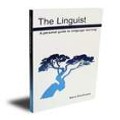If you are serious about learning the language, make sure you equip yourself with the necessary tools and learn how to use them. This initial investment is more important than spending time and money on additional language classes.
The time and money you have available for language learning is limited, so go out and buy reliable listening equipment to take with you wherever you go. The likelihood that you will put the required amount of time into listening increases with the portability of the listening device. Also, use good earphones. The effectiveness of listening increases significantly with good sound quality.
I own a portable CD player, a Minidisc player with small microphone, a portable audio cassette player, and a small hand-held computer with built-in MP3 player and microphone. With this equipment at my disposal, I am ready no matter what form the audio content comes in. I can buy cassette language systems and CD based audio books, download MP3 files, or record meetings, interviews and lectures for later listening. I can also record my own voice and upload files to a computer.
Choose what works for you. Decide how much you want to spend, and what the greatest source of your audio material will be. Language content from the Internet can be downloaded into MP3 players or MD players. Most new computers let you burn CDs. Most audio material you buy today is in CD or cassette form, but the quality and shelf-life of CDs is better than cassettes and in language learning, sound quality is important. The MP3 player and MD player have the great advantage of being very small with high quality sound. But the choice is up to you.
To be a cost effective linguist today, you will need a personal computer and high speed Internet access. If you do not have this access at home you should identify a hub you can use for downloading and accessing content. This can be a library, your school, a friend or an Internet Café. Very often this hub will offer instructions on how to access the content and how to download.
You will also need a good online or offline software dictionary which gives you instant explanations in the language you are studying, as well as the all-important translation into your own language. Contrary to the view of some language teachers, I have always preferred to see the translation of a new word into my own language, rather than decipher an explanation in the language I was learning.
However, a dictionary can only provide you with a partial meaning of a new word. It will take time and significant exposure to the word in a natural context before you acquire a wider sense of the meaning of the word and the confidence to use it properly. You can also expect to forget whatever you look up in a dictionary pretty quickly. That is why it is so important to save all new words into a system like The Linguist's database for further review and study, in conjunction with your reading and listening. Before you decide where you are going to study a language, make sure you are equipped to succeed as an independent language learner!

